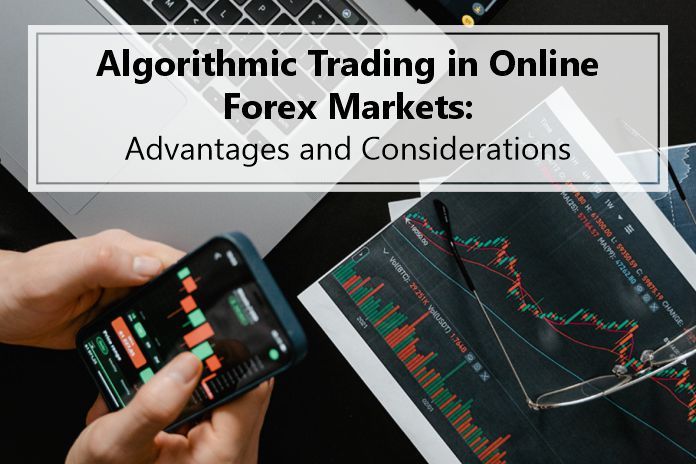The foreign exchange market was distinguished not so long ago by low market concentration, deals made over the phone, institutional investors, opaque pricing information, and a clear division between dealer-customer and inter-dealer trading, but algorithmic trading has overturned all that.
Modern technology has completely changed the currency industry. Quick trades over the computer have made it possible for retail traders to access the market, and real-time streaming prices have increased transparency and reduced the gap between dealers and their most sophisticated clients.
In addition to ensuring the most effective trade execution, placing orders instantly and lowering trading fees, algorithmic trading aims to remove emotion from trading. Trend-following tactics, arbitrage possibilities, and index fund rebalancing are examples of common trading methods.
What is Algorithmic Trading?
A basic definition of an algorithm is a collection of instructions for doing a certain job. Trading in financial markets involves the use of computers to execute user-specified algorithms that are defined by rules pertaining to variables like quantity, price, or timing.
The four basic types of algorithmic trading within forex trading online are:
- Auto-hedging rules is a strategy that reduces a trader’s exposure to risk.
- Statistical trading is an algorithmic approach that searches for lucrative chances in the market by analysing past time series data statistically.
- When algorithmic traders have direct market access, they are able to connect to many trading platforms at optimal speeds and decrease costs.
- A predefined purpose, such as minimizing market impact or speedily executing a trade, is the goal of algorithmic execution strategies.
High-frequency trading (HFT) is a subcategory of algorithmic trading that executes trade orders quickly. In a turbulent forex market, high-frequency trading allows dealers to trade within milliseconds of incremental price movements, but it also has risks.
Algorithmic Trading in the Forex Market
Algorithms automating processes and reducing foreign exchange transaction hours have driven forex algorithmic trading growth in recent years. Automation optimises operations like trade order execution, lowering expenses. Automating trading with an algorithm that executes orders at a certain time or price is far more efficient than manual execution.
Algorithms have improved several operations, lowering transaction costs. These are not the only elements driving forex algorithmic trading growth. Due to their high frequency and capacity to quickly understand data and execute orders, algorithms are increasingly utilised for speculative trading to capitalize on slight price differences between currency pairs.
Spot contracts and currency options are the main forex trade hedging tools. Spot contracts involve quick foreign currency purchases or sales. The forex spot market has risen dramatically since the early 2000s thanks to algorithmic platforms.
>> How to Convert Safaricom Airtime into M-Pesa Cash
In instance, market prices reflect the fast abundance of knowledge, creating arbitrage opportunities. Triangular arbitrage in the forex market involves changing one currency into itself using numerous currencies. These chances are only visible to algorithmic and high-frequency traders using automated tools.
Forex options are derivatives that work like conventional options. Foreign currency options allow the buyer to buy or sell the currency pair at a future exchange rate. Binary options for foreign currency hedging are automated by computers. Binary choices have two outcomes: The trade settles at zero or a strike price.
The bottom line is that while algorithmic trading has made currency trading more efficient and cheaper, it has also introduced new risks. Currency works best when it is both highly liquid and reasonably stable as a store of value. Therefore, a stable and liquid currency market with less price volatility is critical in forex trading online.
> Social Media Scare: Why Has WhatsApp GB Been Banned?













Leave a comment